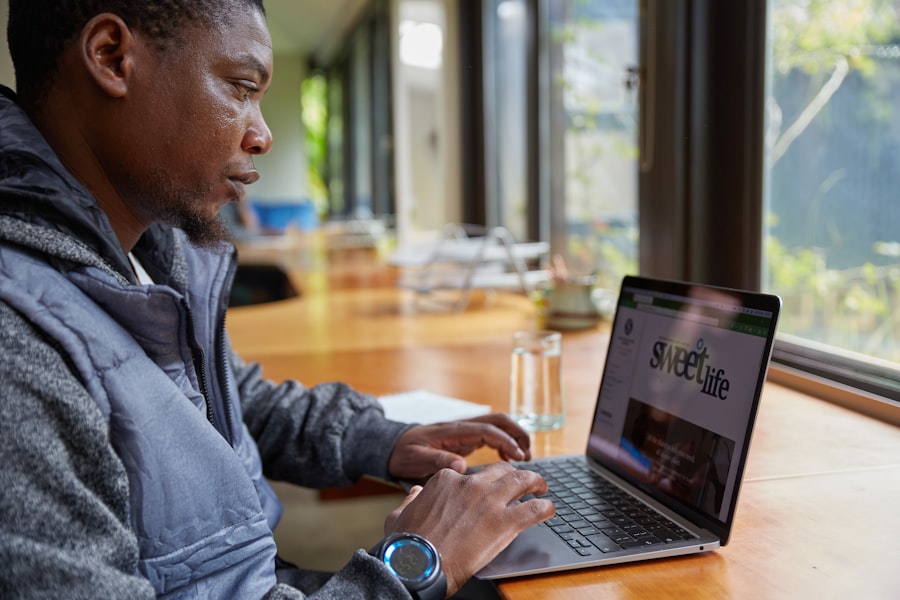Setting boundaries is essential for effective remote work. Establishing clear distinctions between work and personal time helps maintain a healthy work-life balance. This involves communicating work hours and focus periods to family members or housemates, as well as implementing self-imposed limits, such as refraining from checking work-related communications after a specified time.
These practices can help prevent burnout and improve overall well-being. It is equally important to establish boundaries with employers and clients. Clearly defining availability, preferred communication methods, and response times helps manage expectations and reduces the risk of feeling overwhelmed by constant work demands.
By setting and maintaining these boundaries, remote workers can create a more structured and sustainable work environment, leading to increased productivity and job satisfaction.
Key Takeaways
- Setting boundaries is essential for maintaining work-life balance while working from home.
- Creating a schedule helps to stay organized and productive throughout the day.
- Designating a workspace can improve focus and minimize distractions while working remotely.
- Taking regular breaks is important for mental and physical well-being when working from home.
- Communicating effectively with co-workers is crucial for collaboration and maintaining a sense of connection while working remotely.
- Managing distractions is key to staying focused and productive while working from home.
- Prioritizing self-care is important for maintaining overall well-being and preventing burnout while working remotely.
Creating a Schedule
Organizing Your Tasks
Additionally, block out specific times for tasks such as checking emails, attending virtual meetings, and working on projects. By creating a schedule, you can better manage your time and ensure that you are dedicating enough attention to each aspect of your work.
Taking Breaks
It’s also important to schedule regular breaks throughout the day. This could include short breaks to stretch and move around, as well as a designated lunch break. By scheduling these breaks, you can avoid burnout and maintain your energy levels throughout the day.
Maintaining a Healthy Work-Life Balance
Finally, be sure to schedule time for non-work activities, such as exercise, hobbies, and relaxation. By creating a well-rounded schedule, you can maintain a healthy work-life balance.
Designating a Workspace

Designating a specific workspace in your home is important for creating a productive work environment. Ideally, this space should be separate from areas where you relax or spend time with family. This will help you mentally separate your work life from your personal life.
If possible, choose a space with natural light and minimal distractions. Set up your workspace with all the tools and equipment you need to do your job effectively. Consider investing in ergonomic furniture, such as a comfortable chair and a desk at the right height.
This will help you maintain good posture and avoid discomfort or injury from sitting for long periods. Personalize your workspace with items that inspire you, such as plants, artwork, or motivational quotes. By designating a specific workspace, you can create a productive environment that helps you stay focused and motivated throughout the day.
Taking Breaks
Taking regular breaks is essential for maintaining productivity and avoiding burnout while working from home. Schedule short breaks throughout the day to stretch, move around, and give your eyes a rest from screens. Use this time to take a quick walk, do some light stretching, or simply step away from your workspace for a few minutes.
Additionally, be sure to take a proper lunch break away from your desk to recharge and refuel. Incorporate longer breaks into your schedule as well, such as a mid-morning or mid-afternoon break to relax and recharge. Use this time to engage in activities that help you relax and clear your mind, such as reading a book, listening to music, or practicing mindfulness.
By taking regular breaks, you can maintain your focus and energy levels throughout the day, leading to greater overall productivity.
Communicating with Co-workers
Effective communication with co-workers is essential when working from home. Make use of digital communication tools such as email, instant messaging, and video conferencing to stay in touch with your colleagues. Be proactive about reaching out to team members to collaborate on projects and share updates on your progress.
Additionally, be responsive to messages and requests from your co-workers to maintain good working relationships. Set clear expectations for communication with your team, such as preferred methods of contact and response times. This will help everyone stay on the same page and avoid misunderstandings.
Be open and transparent in your communication, sharing any challenges or concerns you may be facing with your team. By communicating effectively with your co-workers, you can maintain a sense of connection and collaboration despite being physically apart.
Managing Distractions

Identifying Distractions
Managing distractions is a key challenge when working from home. Identify potential distractions in your environment, such as household chores, family members, or pets, and take steps to minimize their impact on your workday. This could involve setting boundaries with family members about when you need uninterrupted time to focus, or finding ways to keep pets entertained during your work hours.
Creating a Focused Workspace
Create a focused work environment by minimizing visual and auditory distractions in your workspace. This could involve using noise-cancelling headphones, closing the door to your workspace, or using tools to block distracting websites on your computer.
Staying Focused
Additionally, practice mindfulness techniques to bring your focus back to the present moment when distractions arise.
Maintaining Productivity
By managing distractions effectively, you can maintain your productivity and concentration throughout the day.
Prioritizing Self-Care
Prioritizing self-care is essential for maintaining overall well-being while working from home. Make time for activities that help you relax and recharge outside of work hours, such as exercise, hobbies, and spending time with loved ones. Practice mindfulness and stress-reduction techniques to manage any feelings of anxiety or overwhelm that may arise from working at home.
Set boundaries around your work hours to ensure that you have dedicated time for self-care activities. This could involve scheduling regular exercise sessions, setting aside time for hobbies or creative pursuits, or simply taking time to unwind and relax at the end of the day. Finally, be sure to prioritize healthy habits such as getting enough sleep, eating nutritious meals, and staying hydrated.
By prioritizing self-care, you can maintain a healthy work-life balance and avoid burnout while working from home. In conclusion, working from home presents unique challenges in terms of setting boundaries, managing distractions, and maintaining overall well-being. By creating a schedule, designating a workspace, taking regular breaks, communicating effectively with co-workers, managing distractions, and prioritizing self-care, you can navigate these challenges successfully and maintain productivity and well-being while working remotely.
With the right strategies in place, working from home can be a rewarding and fulfilling experience that allows you to thrive in both your professional and personal life.
If you’re struggling to balance remote work and personal life, you may also be interested in learning how to improve your adaptability skills. This article from Careers Help provides valuable tips on how to become more flexible and adaptable in your work and personal life, which can help you navigate the challenges of remote work more effectively.
FAQs
What is remote work?
Remote work refers to a work arrangement where employees can work from a location outside of the traditional office setting. This can include working from home, a co-working space, or any other location with an internet connection.
What are the benefits of remote work?
Remote work offers benefits such as flexibility, reduced commuting time, increased productivity, and a better work-life balance. It also allows companies to access a wider talent pool and reduce overhead costs.
How can remote work impact personal life?
Remote work can blur the lines between work and personal life, leading to potential challenges in setting boundaries, managing time effectively, and avoiding burnout. It can also impact social interactions and mental well-being if not managed properly.
What are some tips for balancing remote work and personal life?
Some tips for balancing remote work and personal life include setting clear boundaries, creating a designated workspace, establishing a routine, taking regular breaks, and communicating with colleagues and family members about expectations and availability.
How can employers support employees in balancing remote work and personal life?
Employers can support employees by promoting a healthy work-life balance, providing resources for mental health and well-being, encouraging time off, and fostering a culture of flexibility and understanding. Clear communication and realistic expectations are also important.



